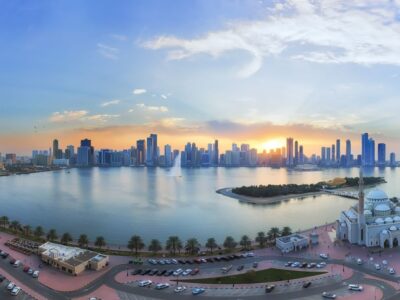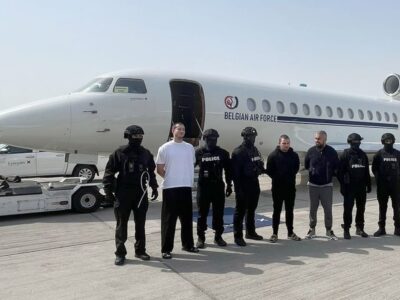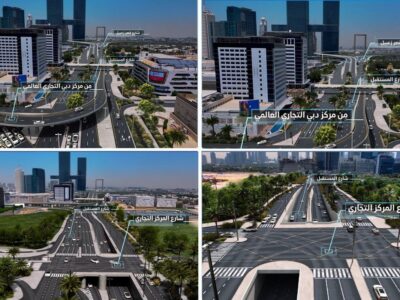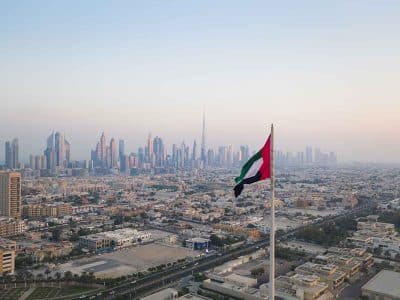After witnessing the 2011 Egyptian revolution, former journalist Ahmed Moor decided to launch Liwwa, a peer-to-peer funding platform that would address the MENA region’s $240bn SME funding gap by lending money to growing businesses.
Together with co-founder and CTO Samer Atiani (former senior software developer at New York-based online retailer Etsy), Moor has managed to lend over $10m to SMEs across the region since the establishment of the Amman-based firm in 2013.
But the Palestinian American entrepreneur, who was born in Rafah refugee camp in Gaza, is particularly interested in driving job creation, acknowledging that there are more unemployed graduates than there are jobs in the MENA region. A big believer in the private sector, he aims to boost it in order to tackle the unemployment he claims is largely related to the persistant weakness in regional economies.
He tells Arabian Business why hiring is his biggest challenge, where he intends to expand Liwwa and why his home country of Palestine is not yet on his list.
How does Liwwa support job and income growth in the MENA region?
It is very simple: Liwwa lends money to established and growing small businesses. These businesses then grow faster because they have access to debt, and hire more people as a result. Liwwa also hires people as we grow. We have a team of about 30 people today.
What were some of the challenges you faced when setting up Liwwa, and what are some of the difficulties you now face?
Raising money was our biggest challenge when we were getting started. Samer and I started out with $60,000 in savings between us. We spent a year and a half building the basic parts of the business before we succeeded in raising our seed round of $500,000. We’ve since raised a Series A investment which brings our total to $5,550,000. Omar Sati of Dash Ventures took a risk on Samer and me when he wrote us our first $200,000 check, and he has been there every step of the way. But the biggest challenge today is hiring. We operate in an environment that makes it difficult to execute, even as the stakes around flawless execution are raised – one doesn’t get too many second chances in MENA.
Liwwa’s grown beyond the point where a few people can oversee everything that happens. So meeting people with initiative, a high risk tolerance and commitment to our mission is an ongoing challenge.
What inspired the name Liwwa?
Liwwa in Arabic means district and banner. Samer and I appended a marketplace lending component to Liwwa’s supply side (the lender side), so we envisioned a group of people (a district) coming together (around a common goal, symbolised by the banner) to lend to SMEs.
You’re currently raising your Series B funding round to expand Liwwa into new markets, including Egypt and Saudi Arabia, where there is much demand. But Palestine is not on your list. Why is that?
Unfortunately not yet. It’s hard to imagine a scenario where we’d be able to extend the Liwwa service to Palestine given the existing state of affairs there. Palestine is faced with a long-standing political challenge that’s all-encompassing – there’s little life beyond occupation.
What are your thoughts on the entrepreneurial scene in Palestine, where a start-up scene has managed to emerge despite the ever-increasing restrictions placed on Palestinians under the occupation?
I wish Palestine had a real economy. Palestinians are well-educated and they work hard, often against impossible odds in a captive economy. The very fact of a nascent startup scene is a miracle. But for entrepreneurs to succeed anywhere there has to be rule of law, equality before the law, access to resources and non-discrimination in how that access is provided. None of that exists in Palestine today. Anything that’s been achieved there has been accomplished in spite of the environment and the donor-reliant economy.
You were born in the Rafah refugee camp in Gaza. How did you get to where you are today?
I am very fortunate to have parents who value education. My father completed his primary education while working as a part time labourer, after which he attended college by correspondence in Lebanon while working for an American NGO, eventually earning a master’s degree in the US before moving back to Palestine, where he met my mother, a kindergarten teacher. His job resulted in us moving from Sudan to Sierra Leone to Haiti and Nepal before we finally received US citizenship. Shortly after, we moved back to Palestine. But when I was in high school, the Second Intifada happened, and we moved back to the US.
After university, I worked in New York on a bond structuring desk. Then the global financial crisis happened and I was laid off, so I moved to Lebanon and became a journalist, covering politics and economics in Lebanon, Palestine and Egypt, as well as American foreign policy. After the revolution in Egypt, I went to Harvard and started Liwwa.
It is not easy to set up a funding platform in a region that has a $240bn SME funding gap. Were you ever hesitant to launch Liwwa?
It took a year-and-a-half for us to secure our first round and it was one of the most difficult periods of my life. My wife offered emotional support and she helped me keep things in perspective; I wouldn’t have gotten through the experience otherwise. The spectre of failure is all-encompassing – you feel like you’re on the verge of letting yourself and your family down. Having a co-founder was also really good. Samer and I learned to be resilient together and we faced everything together.
What makes a successful entrepreneur?
I don’t know. And if you find out, please tell me!








